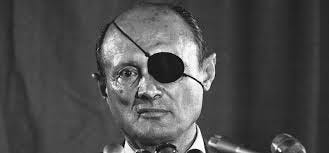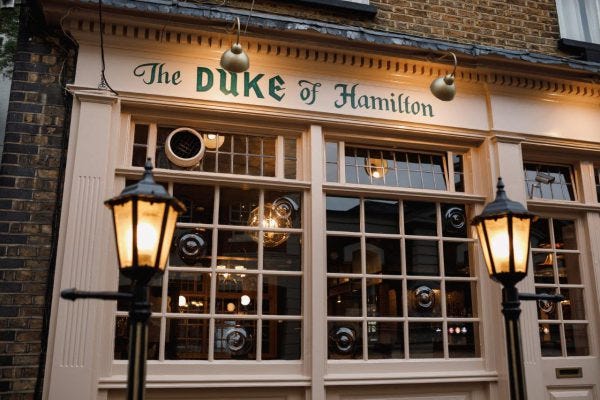EXTRACT 6 FROM MY MEMOIR
The Spy Who Fell to Earth: My Relationship with the Secret Agent Who Rocked The Middle East
CHAPTER 4: I UNMASK MARWAN
MANY YEARS HAVE PASSED BUT the picture is still clear in my mind. I am sitting at the kitchen table with my mum. She’s having chicken soup but I am not. I am fasting. Not eating and drinking for a whole day is no easy matter for a fifteen-year-old, and it’s just past two in the afternoon. It’s Yom Kippur, 1973. Then, someone calls my mum’s name from under our balcony. I can recognize the voice. It’s Mazel, our next-door neighbour. Mum takes her plate with her and steps out onto the balcony. But it’s not necessary as Mazel is quite excited. `Turn the radio on … Turn the radio on,’ she screams at the top of her voice. `War has just broken out.’
So traumatic! So out of the blue! So unlike 1967, when our troops defeated Arab armies so quickly and elegantly. Back then, my dad woke me up one morning, pointing at a picture in a half-folded newspaper, telling me - a sleepy nine-year-old - that the man in the picture, Moshe Dayan, would soon lead us to a great victory over the Arabs. I remember looking at the picture and seeing someone with a black-eye patch who looked like a pirate; as a young boy, I knew pirates always win wars, and I was happy enough.
My “pirate” - Moshe Dayan.
But now, six years on, the pirate is on our black-and-white TV screen, defeated, his head bowed and his voice trembling as he tells us that our troops at the front are fighting an invading enemy and that, `we are fighting for our lives!’ Fighting for our lives? Us?
In subsequent years, the Yom Kippur trauma continued to deeply affect our collective life, as losing close to 3,000 young men touched upon every corner of the then-small Israeli community. As I grew up and moved from high school to the army to university, and then turned my attention to the history of Israel’s wars and even penned a few books on the subject, I realized that of all Israel’s wars, it is the 1973 Yom Kippur War which is the most exciting: the story of a superb Arab surprise attack which succeeds in catching Israel totally off balance, and an almost miraculous Israeli comeback and counter-attack which takes Israeli troops to the gates of Cairo and Damascus. But, above all, it’s a John le Carre espionage drama, at the heart of which is a colourful superspy whose name is shrouded in mystery and is top secret in Israel.
After warning Zvi Zamir in London on 5 October 1973 that war would break out the next day, Ashraf Marwan returned to Egypt. There, he continued to work busily for President Sadat as a roving ambassador, delivering personal messages to Arab leaders to coordinate their moves in an attempt to take advantage of the successful surprise attack on Israel. After the war, Marwan’s star continued to rise. He was promoted from job to job in Anwar Sadat’s administration, and along the way - feared, mistrusted, and disliked - he made himself many enemies; in Cairo, he was dubbed `Dr. Death.’ He also became a very rich man, as he was charged with Egypt’s arms-purchasing program and earned himself substantial commissions through these arms deals, which went into his overseas bank account.
In Cairo, Ashraf Marwan was dubbed `Dr Death’
At the same time, as relations between Israel and Egypt improved—the two countries signed a peace treaty in 1979, and Israel returned the occupied Sinai to Egypt—Marwan lost much of his importance as a spy for Israel. So, while the Israelis did not drop him, they rarely called on him now.
What happened next would change everything for Egypt and, once again, for Ashraf Marwan.
In 1981, President Anwar Sadat was assassinated by Islamic fundamentalists during a military parade in Egypt to commemorate what they regarded as the Egyptian victory over Israel in 1973. Sadat was succeeded by his vice-president, Hosni Mubarak. The new leader did not invite Marwan to join his inner circle, and that year Marwan left Cairo with his family. His destination was London, but on the way, he stopped in Paris and bought an expensive house, installing Mona and his children there before proceeding to the UK.
For Marwan, London was, of course, not a new place: he had been a student there, and most of his spying career for the Israelis had taken place there. But now he was financially secure; it is estimated he had between £300m and £500m in various accounts. At first, he lived in a comfortable house in Hampstead in north London, where he would often emerge to be seen having a quiet whisky in a local pub, the Duke of Hamilton, while reading Arabic newspapers and the Financial Times.
The Duke of Hamilton pub in Hampstead where Ashraf Marwan would have his daily whisky
Soon after he arrived in the British capital, Marwan embarked on a spree of property purchasing; he began to build up a property and business empire, including part of the co-ownership of Chelsea Football Club. He also became a full-time arms dealer, breaking UN sanctions and shipping weapons to Africa and elsewhere. His latter activity concerned Marwan’s old paymaster - the Mossad - as the Israelis saw their spy developing a friendship with Libya’s Colonel Qaddafi, a sworn enemy of Israel. When the Mossad began to suspect that Marwan was supplying Qaddafi with arms, they started to spy on their old spy; they broke into his house to photocopy documents to try establish whether he was trading arms with Libya and installed secret cameras and listening devices in his home.
Ashraf Marwan (standing in the middle) and Colonel Qaddafi (sitting on the right). Marwan & Qaddafi became friends and Marwan supplied Qaddafi with arms.
From London Marwan kept close links with the Egyptian elite; one of his sons married the daughter of Amr Moussa, formerly the Egyptian foreign minister and then the secretary-general of the Arab League, while his other son, Gamal, was a close friend and business partner of Gamal Mubarak, son of President Mubarak.
By the early 1980s, Marwan’s contacts with the Mossad had dwindled to almost nothing - except for one occasion when he found himself in a sudden financial crisis and turned to them for help. He was then paid a lump sum of half a million dollars in lieu of the years he had worked for no money. It would be the last time the Mossad paid him.
There is a coda, which marks the end of Marwan’s spying career for the Israelis.
In the mid-1990s, Mossad decided to revive the dormant relationship with Marwan. The Israelis recognized that Marwan’s web of contacts across the Middle East and beyond could benefit them. So `Alex’—Dubi Asherov, Marwan’s old case officer—was sent to London to renew the contact.
From the day he joined the Mossad in 1970, Marwan insisted on two conditions: first, that only `Alex’ would handle him, and second, that he would never be secretly or otherwise recorded. His first request was fulfilled, as the Mossad allowed - albeit reluctantly - Asherov to remain Marwan’s sole control, which he was for twenty-eight years until the end of Marwan’s work with the Mossad. The second request was never actually fulfilled, as in the apartment where most meetings with Marwan took place, near the Dorchester Hotel, the Mossad installed secret recording systems; but at least Marwan did not know about it. Now, however, the new director of the Mossad, Danny Yatom, concerned about the too-close Asherov-Marwan relationship and wanting to know what passed between them, ruled that Asherov should carry a tape recorder in his pocket and record his conversation with Marwan.
Interviewing Director of the Mossad Danny Yatom (left). He insisted that Marwan should be secretly recorded. It ended in tears!
Asherov and Marwan met over dinner and things started well. The two men were delighted to see each other again as they had gone through so much together. But then disaster struck; when Asherov’s hidden tape recorder reached the end, a mechanism fault caused it to start playing the recorded conversation aloud. Embarrassed, Asherov hurried to the bathroom to silence the machine, leaving a deeply offended Marwan at the table. When Asherov returned, he apologized profusely but was experienced enough to know it was a disastrous mishap. Indeed, this turned out to be the last ever meeting between Marwan and Asherov. Betrayed and hurt, Marwan refused to meet anyone from the Mossad again. The next Israeli Marwan had a relationship with was not a Mossad operator but an academic - myself.
TO BE CONTINUED …
![Ahro[n]pinion: Israel & Middle Eastern Affairs](https://substackcdn.com/image/fetch/$s_!raDG!,w_80,h_80,c_fill,f_auto,q_auto:good,fl_progressive:steep,g_auto/https%3A%2F%2Fsubstack-post-media.s3.amazonaws.com%2Fpublic%2Fimages%2Fa3267808-8a75-4b8a-acfb-53838512afbe_1059x1059.png)





